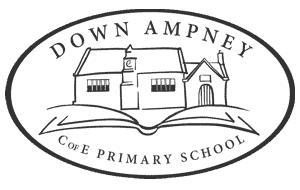
Even the youngest pupils talk with confidence of the three Bible stories which exemplify the vision of achieving, believing and caring.
Siams, Jan 2020
EYFS Communication and Language
Intent
Implementation
Our topics, routines and environment promote high quality communication and language development. Exciting and vocabulary rich texts are used to introduce children to new ideas, concepts and vocabulary, while also promoting curiosity and discussions. Children are encouraged to ask questions in group and whole class discussion whenever possible. Children who struggle to communicate are targeted in provision and learning interventions are used when children lack confidence or do not have the expected level of development. Through our continuous provision and our learning environment, pupils are exposed to situations where they can experiment with the new language they have acquired (such as through role play) and use their listening skills as they interact with peers and adults. By being exposed to new experiences (such as trips and visitors), our children apply their speaking, listening, reasoning and questioning skills. Routines, such as snack times, are valuable opportunities where speaking and listening skills can be modelled and promoted through informal dialogue with peers and adults. The teachers at Down Ampney C of E Primary School model effective speaking and listening attributes through back and forth talk and use questioning and resources to further the children’s development. Repeating sentences back to children, modelling correct speech sounds, extending what they have said or describing and commenting on what is happening is also a regular practice used to develop speaking and listening skills. Following observing and interacting with the children, the teachers reflect on the exchanges using their knowledge and assessments to build on the children’s learning, they will then provide developmentally appropriate experiences linked to the children’s next steps and interests. In addition to this, all Reception children are screened using ‘OxEd LanguageScreen’ and any child flagged with a concern may then have a follow up of a BPVS assessment to assess further needs. This assessment information is used to inform staff of specific needs as well as allowing the class teacher to determine children in focus for NELI (Nuffield Early Literacy Intervention) sessions throughout the year.
Impact
Through our high-quality teaching and provision, we aspire for all children to reach the Early Learning Goals by the end of the Foundation Stage. All teachers know the children’s next steps and how to progress their knowledge and skills through interactions, play and resources within group and whole class work. Our children move into Year 1 with the confidence and skills to express themselves in a range of different situations, using a wide variety of rich language. They have fantastic listening skills and the ability to take part in, hold and extend back and forth conversations with others. In addition to this, subject leaders across the school are aware of how children join Down Ampney and how the foundation stage introduces key concepts ready for subject specific learning in Year 1.

